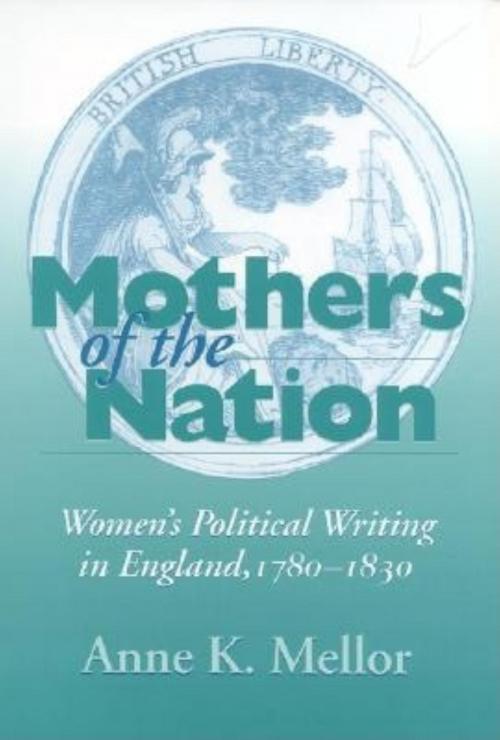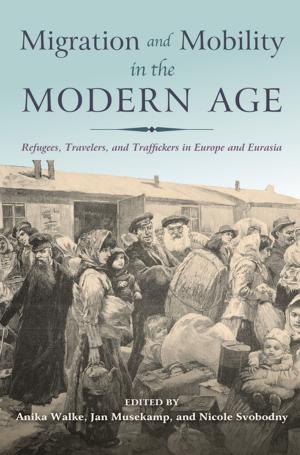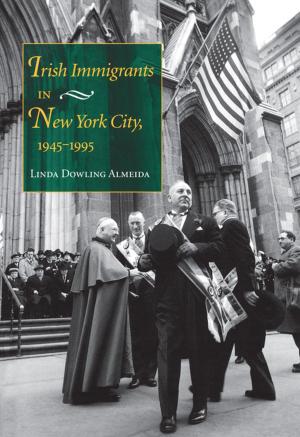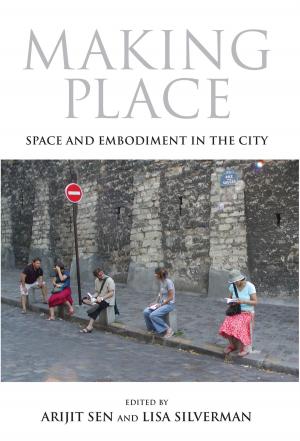Mothers of the Nation
Women's Political Writing in England, 1780–1830
Fiction & Literature, Literary Theory & Criticism, British, Nonfiction, Social & Cultural Studies, Social Science, Gender Studies, Women&| Author: | Anne K. Mellor | ISBN: | 9780253028198 |
| Publisher: | Indiana University Press | Publication: | May 22, 2000 |
| Imprint: | Indiana University Press | Language: | English |
| Author: | Anne K. Mellor |
| ISBN: | 9780253028198 |
| Publisher: | Indiana University Press |
| Publication: | May 22, 2000 |
| Imprint: | Indiana University Press |
| Language: | English |
British women writers were enormously influential in the creation of public opinion and political ideology during the years from 1780 to 1830. Anne Mellor demonstrates the many ways in which they attempted to shape British public policy and cultural behavior in the areas of religious and governmental reform, education, philanthropy, and patterns of consumption. She argues that the theoretical paradigm of the "doctrine of the separate spheres"may no longer be valid. According to this view, British society was divided into distinctly differentiated and gendered spheres of public versus private activities in the 18th and 19th centuries,
Surveying all the genres of literature—drama, poetry, fiction, non-fiction prose, and literary criticism—Mellor shows how women writers promoted a new concept of the ideal woman as rationally educated, sexually self-disciplined, and above all, virtuous. This New Woman, these writers said, was better suited to govern the nation than were its current fiscally irresponsible, lecherous, and corruptible male rulers.
Beginning with Hannah More, Mellor argues that women writers too often dismissed as conservative or retrogressive instead promoted a revolution in cultural mores or manners. She discusses writers as diverse as Elizabeth Inchbald, Hannah Cowley, and Joanna Baillie; as Charlotte Smith, Anna Barbauld, and Lucy Aikin; as Mary Wollstonecraft, Charlotte Reeve, and Anna Seward; and concludes with extended analyses of Charlotte Smith's Desmond and Jane Austen's Persuasion. She thus documents women writers' full participation in that very discursive public sphere which Habermas so famously restricted to men of property. Moreover, the new career of philanthropy defined by Hannah More provided a practical means by which women of all classes could actively construct a new British civil society, and thus become the mothers not only of individual households but of the nation as a whole.
British women writers were enormously influential in the creation of public opinion and political ideology during the years from 1780 to 1830. Anne Mellor demonstrates the many ways in which they attempted to shape British public policy and cultural behavior in the areas of religious and governmental reform, education, philanthropy, and patterns of consumption. She argues that the theoretical paradigm of the "doctrine of the separate spheres"may no longer be valid. According to this view, British society was divided into distinctly differentiated and gendered spheres of public versus private activities in the 18th and 19th centuries,
Surveying all the genres of literature—drama, poetry, fiction, non-fiction prose, and literary criticism—Mellor shows how women writers promoted a new concept of the ideal woman as rationally educated, sexually self-disciplined, and above all, virtuous. This New Woman, these writers said, was better suited to govern the nation than were its current fiscally irresponsible, lecherous, and corruptible male rulers.
Beginning with Hannah More, Mellor argues that women writers too often dismissed as conservative or retrogressive instead promoted a revolution in cultural mores or manners. She discusses writers as diverse as Elizabeth Inchbald, Hannah Cowley, and Joanna Baillie; as Charlotte Smith, Anna Barbauld, and Lucy Aikin; as Mary Wollstonecraft, Charlotte Reeve, and Anna Seward; and concludes with extended analyses of Charlotte Smith's Desmond and Jane Austen's Persuasion. She thus documents women writers' full participation in that very discursive public sphere which Habermas so famously restricted to men of property. Moreover, the new career of philanthropy defined by Hannah More provided a practical means by which women of all classes could actively construct a new British civil society, and thus become the mothers not only of individual households but of the nation as a whole.















